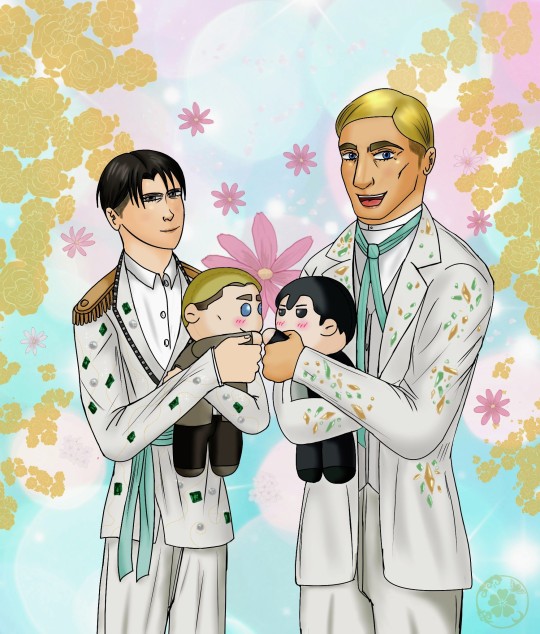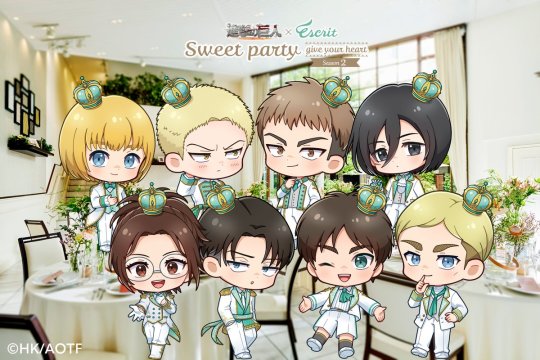#escrit
Explore tagged Tumblr posts
Text
Soy yo
No se por dónde empiezo a escribir
Tantas cosas que decir, que no logran salir
Como la espesa miel saldría por un pequeño agujero
Así se sienten todos mis inexpresos sentimientos
Quisiera explotar a llanto, pero es tanto, que solo me queda cargarlo conmigo hasta que desaparezca
Lo entiendo todo y al mismo tiempo no entiendo nada
Soy como una minúscula araña intentando aparentar ser una tarántula
Un pequeño alfiler en la arena del desierto
No hay ojos que me miren como deberían
Ya es un cliché el tratarme con pena y cariño
Es tanto así que ni siquiera tengo autopercepción de lo que ruego
Me miento sabiendo la verdad
Y pido más de lo que me puedan dar
Me entristezco equivocadamente
Porque no lloro por lo que lloro
Solo me engaño para no admitir que no me sé amar.
~Soliloquia
2 notes
·
View notes
Text
Será que um dia esses versos chegarão aos seus olhos e, finalmente, verás que eu te amo com toda minha alma?
#writers#liberdadeliteraria#arquivopoetico#lardepoetas#love#mentesexpostas#projetoalmaflorida#lardospoetas#versografando#poesía#escrit#autorais#novosescritores#projetoversografando
15 notes
·
View notes
Text
INTENSO CORAZÓN
Un corazón que nadie más había logrado despertar - o al menos no de esa forma-, un corazón que tenía miedo de entregarse, de amar y ser amado, uno que había decidido renunciar al cariño por temor de volver a ser fracturado.
Y tú, como cafeína llegadte y me despertaste de un sueño profundo, llenaste mi ser de energía, de alegría y poco a poco me fuiste quitando el deseo de volver a dormir y mantener mi corazón inactivo y totalmente alejado de todo lo que estuviera relacionado con lo que yo consideraba ilusas y tontas fantasías amor.
No sabía que mi vida se encontrabaen una era de otoño, hasta que entraste en ella y transformarte esa intermitente estación fría y caliente en una floreciente primavera. Con tu cariño lograste cultivar sobre glaciares, jardines llenos de flores, y el color monocromático de mi personalidad lo convertiste en una inefable gama de colores.
Mi lugar seguro dejo de ser un lugar, porque ahora tú te convertiste en mi sitio favorito en el que siento tanta paz y tanto me gusta estar.
Así que déjame agradecerte, haciendo lo mismo por ti. Gracias por estar aquí, por todo el cariño, por la comprensión que me das, por la tranquimidad que me haces sentir, por derretir el hielo en el que vivía y ayudarme a descubrir lo que significa querer de verdad.
Escrito 520
Nani owl

5 notes
·
View notes
Text


Good grief. They really are so married.
[Shingeki X Escrit Sweets Party collaboration]
#i keep reading Escrit as Eruri#it's the font#honestly#erwin smith#levi ackerman#eren yeager#official art#snk
90 notes
·
View notes
Text



#dailyarisato official art#dailyarisato collab#ft souji#ft yu#ft kotone#ft hamuko#ft minako#ft akira#ft ren#ft joker#dailyarisato merch#a wedding collab!! escrit wedding service#get married with a persona themed wedding or something#tbh i would i bet a persona 3 themed wedding would be epic
19 notes
·
View notes
Photo

12 notes
·
View notes
Text
"És curiós quede vegades ens n'hàgim d'anar lluny per veure-hi millor de prop".
Enric García Jardí a "Cròniques del Quetzal. Escrits d'un viatge al nord de Guatemala".
0 notes
Text
{ Rossinyol.
Tenim una casa dalt d’un arbre, d’on cuidem el nostre cultiu.
I d’un dia per a l’altre hi vàrem vore un rossinyol volent fer niu.
Mai no canta quan em veu, però a tu sí que et somriu.
Té els ulls ambars i un bonic cantar.
Mentre jo tinc paranoia que a tu et pugue enamorar.
Que els nostres lliris et facin nosa
i vulgue al jardí plantar un roser,
per que em punxo i em desagne
i ja no hem pugues vore més.
orvum
1 note
·
View note
Text
Marketing na arquitetura [GA]
Um dos aspectos que mais causaram perplexidade em nossa pesquisa com arquitetos titulares de escritórios de São Paulo foi a recorrente afirmação, proferida com orgulho, de que “o meu escritório não faz marketing”, ou que “nunca precisei fazer marketing”. Causa perplexidade e tristeza ver que continuamos com este nível de ignorância institucionalizada por todo o setor: quando se pesquisa a…

View On WordPress
#administração em arquitetura#administração para arquitetos#Arquitetura#arquitetura e urbanismo#blog#como arquiteto faz marketing#como arquitetos fazem marketing#como marketing ajuda#como o marketing ajuda escrit#como o marketing ajuda escritório de arquitetura#como o marketing ajuda escritórios de arquitetura#como se faz#como se faz marketing de escritório de arquitetura#conceito#definição#empresa de arquitetura#escritório de arquitetura#GA#Gestão Arquitetônica#gestão do escritório de arquitetura#marketing de arquitetos#marketing de escritório de arquitetura#marketing na arquitetura#Marketing para arquitetos#marketing para arquitetura#o que é#o que é marketing#o que é marketing de escritório de arquitetura#o que é marketing em escritório de arquitetura#para que serve marketing
1 note
·
View note
Text
Paul Robalino texting Lorena's mother with "Hola Mamita, we're filming the thing and I'm reminding you to watch it in six months" , then getting ❓and a suspicious "are you being kidnapped" phone call has KILLED ME.
Lorena: Just say Bitch, Ya te conte... 🙄💅
Paul: 😳🚨 Straight up say bitch to her???
Nora, on the phone 1.24 seconds later: ¿Has escrit la paraula mamita, Eres tu?
Lorena: ¡Si, soy yo!
Best Smartypants presentation ever, 17/10, no notes.
123 notes
·
View notes
Text
New Attack on Titan x Escrit collab illustrations


#eren jaeger#eren yeager#reiner braun#hange zoe#mikasa ackerman#armin arlert#erwin smith#jean kirstein#levi ackerman#attack on titan#aot#aot official art
59 notes
·
View notes
Text
I si algú es pensava que el PSC no podia ser més ranci, es reiteren el donar suport al feixista que han col·locat de delegat de la Generalitat de Catalunya a la Catalunya Nord (Daniel Christipher Person).
Després de ser el primer delegat que ha fet canviar la llengua de comunicació de la Generalitat a la Catalunya Nord (fins ara es feia en català, ara únicament en francès), aquest home ha anat a la Catalunya Nord ha dir-los que no són catalans i que a aquella terra no li dirà mai Catalunya Nord, únicament els termes que segons ell són oficials reconeguts per l'estat francès, és a dir, Pirineus Orientals per referir-se a la Catalunya Nord + la Fenolleda (una denominació imposada durant el centralisme jacobí, que va reorganitzar totes les zones de l'estat per amagar-ne i diluïr-ne les cultures, imposant-hi l'imperialisme francès), o Occitània per referir-se a tota la regió administrativa. Un tema que els nord-catalans ja van lluitar molt, intentant que la nova regió administrativa no s'anomenés només Occitània sinó Occitània-País Català, però al ser una zona petita i menys poblada dins d'una regió gran no ho van aconseguir.
Però, a sobre, Person menteix. El 10 de desembre de 2007 es va aprovar la llei francesa per la qual es reconeix que el terme "Catalunya Nord" és equivalent a "Pirineus Orientals". Simplement es nega a anomenar el país pel seu nom per pur supremacisme i catalanofòbia. A sobre, ha vingut a fer aquest discurs de merda en un moment especialment dur per als nord-catalans, quan els governs d'extrema dreta estan atacant-ne constantment la catalanitat (Aliot esborrant el nom "la catalana" de Perpinyà i canviant-ne l'escut, retirant els ajuts econòmics a La Bressola, etc) i quan l'estat francès ha portat a alcaldes i regidors de varis ajuntaments nord-catalans als tribunals simplement per parlar en català i no en francès.
Òbviament, entitats i persones reconegudes de la Catalunya Nord han escrit a Salvador Illa perquè destitueixi el delegat de la Generalitat. Per cert, podeu unir-vos a la petició amb aquesta recollida de firmes:
I la resposta d'Illa és dir que no vol "entrar en debats nominalistes" i s'ha negat a anomenar-la Catalunya Nord, dient-li simplement "aquest territori" (ja a la visita oficial li va dir únicament "la demarcació del sud de França amb vincles històrics amb Catalunya"). És nominalista anomenar a un país pel seu nom, un nom que li ha sigut negat per una potència colonial que l'ha ocupat i l'ha intentat aniquil·lar? I, en canvi, deixar d'utilitzar la llengua local per passar a utilitzar únicament la llengua d'imposició (el francès) i eliminar el nom de la terra per imposar-hi la denominació triada des de París sense consultar a la població i en contra de la seva voluntat, això els sembla neutre? El nacionalisme francès —i el supremacisme francès— deixen de ser nacionalisme simplement perquè són l'status quo? Però nosaltres demanant tenir el mateix dret a existir sí que és nacionalisme i distraiem amb qüestions nominalistes?
Catalunya Nord és igual de Catalunya que la Catalunya Sud. És insultant que ho neguin. Per la gent de Catalunya Nord, dir "Catalunya" vol dir justament Catalunya Nord.
Res que no ens haguem d'esperar del PSC, que porta tota la legislatura així, atac rere atac contra la llengua catalana i la catalanitat a la Catalunya que governen. No ho explico aquí perquè és constant i perquè no cal, ja surt als diaris i no tracta d'això aquest blog. Però anar a atacar d'aquesta manera el Nord, sabent que ho estan passant malament, no és només de ser supremacista i catalanòfob, sinó també cruel.
Update: les associacions nord-catalanes s'han continuat queixant i han demostrat que seria impossible continuar treballant amb elles mentre aquest borinot fos el delegat, i l'han acabat fent fora!
29 notes
·
View notes
Note
Nina, desculpa pelo tamanho do texto!
O Juanicar Caruso apoiou o filme “Ainda Estou Aqui” e a Fernanda no Twitter. Ele escreveu: “Esta cuenta banca Aun estoy aqui aguante brasil y fernanda torres”.
“Aun estoy aqui le gano a emilia perez el MUNDO ESTA SANANDO 🇧🇷🙏🏻”.
De forma alguma, eu espero que as pessoas ignorem as polêmicas dele ou esqueçam como a postura dele referente aos erros foi medíocre.
Com essas citações, eu quero levantar uma questão, nada mais!
Gostaria que me explicassem o motivo de um argentino ter uma opinião mais favorável ao projeto que conta uma história tão importante do que alguns brasileiros. Em que momento nos tornamos tão inconsistentes com a apreciação de trabalhos artísticos da nossa nação?
Não pretendo falar que Anora é ruim, o filme aborda um tema muito importante. No entanto, trata de maneira tão esdrúxula, na minha opinião. Não acho prudente o filme trazer abordagens cômicas em determinados momentos.
Profissionais do sexo são constantemente desumanizados, ridicularizados pela sociedade.
Quando o filme escolhe tratar destas questões de maneira tão leviana, sem atacar a real raiz do problema, na minha opinião, se torna uma crítica vazia. A Anora poderia ter uma história que evidenciasse como a necessidade de dinheiro no sistema capitalista levou-a se prostituir para não passar fome. É necessário lutar pelos diretos das pessoas que são profissionais do sexo! Mas, em um mundo digno, ninguém deveria ter que vender o próprio corpo para sobreviver. Eu sinto falta dessa mensagem no filme!
Nunca é revelado para o espectador a trajetória da personagem até o momento da vida em que ela se encontra. Esse fato (para mim) torna a personagem muito frívola. Se isso foi feito de forma proposital, para que as profissionais do sexo se identificassem com ela, é preguiçoso.
Tenho horror de protagonistas tolinhas e bobinhas! E a Anora, para mim, é isso, uma menina ignorante em relação à sua situação como uma mulher que trabalha com prostituição.
O fato dela trabalhar com prostituição, nunca fez com que ela conhecesse os males da vida?
Eu fico pensando no motivo que impediu a família do vanya de matar a Anora, ela era uma ninguém. Não faz sentido para mim eles terem lidado com ela daquela forma. É tão comum ver profissionais do sexo serem mortas por muito menos, que ficou irreal para mim a relação da Anora com a família do vanya.
Eu vi uma guria falando que Anora mostrou para ela que está tudo bem sonhar e não aceitar ser tratada como objeto por um homem. No entanto, a protagonista termina o filme humilhada, no final ela se encontra destruída devido a toda a situação que ela passou. Na minha opinião, não houve uma trajetória de superação. A personagem não muda de vida, desiludida ela volta para a realidade precarizada dela, FIM. Não entendo como isso pode inspirar alguém…
A Mikey Madison atua bem, eu só acho que o filme é muito raso em comparação a alguns outros concorrentes.
Não tenho problema nenhum com as cenas de sexo que constam no filme. Só não acho que o filme mereceu ganhar. Essa é a minha opinião!
Trazendo a questão anterior novamente, por qual motivo algumas pessoas menosprezam o filme “Ainda Estou Aqui” e escolhem “Anora”?
Ainda Estou Aqui, mostra a força de uma mãe de família resiliente, que lutou para conquistar justiça por sua família. Uma mulher que mesmo com todas as dificuldades da vida continuou lutando. É uma história extremamente importante do nosso país. Contada de maneira tão esplêndida! Por isso, não entendo como pode existir brasileiros que não preferem esse filme, ao invés de Anora.
Desculpa por desabafar, estou irritada.
Que motivos você acha que levam as pessoas a defenderem Anora com tanta força de vontade?
entendo seu ponto de vista e penso o mesmo! (exceto que eu não ligo pro juanicar quero q se exploda
vou dizer uma coisa aqui que é minha pura opinião de xique xique bahia📍mas acho que anora é pobres criaturas tudo de novo. Roteiros rasos, nada complexos de verdade, escritos por homens que acharam que fizeram um grande mousse feminista, e são defendidos pelas atrizes incríveis que infelizmente querem nos fazer comprar a ideia. Assim como pobres criaturas, anora também quer tocar em pontos da liberdade feminina mas peca em diversos sentidos. Acho que a maior parte dos votantes (que são, de fato, o estereótipo do homem branco velho) gosta desse tipo de narrativa pq podem sentir que estão sendo "abertos" o suficiente.
14 notes
·
View notes
Text

White Day art with the outfits from the Escrit collab + the plushies from another official art
7 notes
·
View notes
Text








New Escrit Sweet Party event announcement & merchandise.
Why does this look like Eren's final Titan??

And don't even ask me what's going on here...

31 notes
·
View notes
